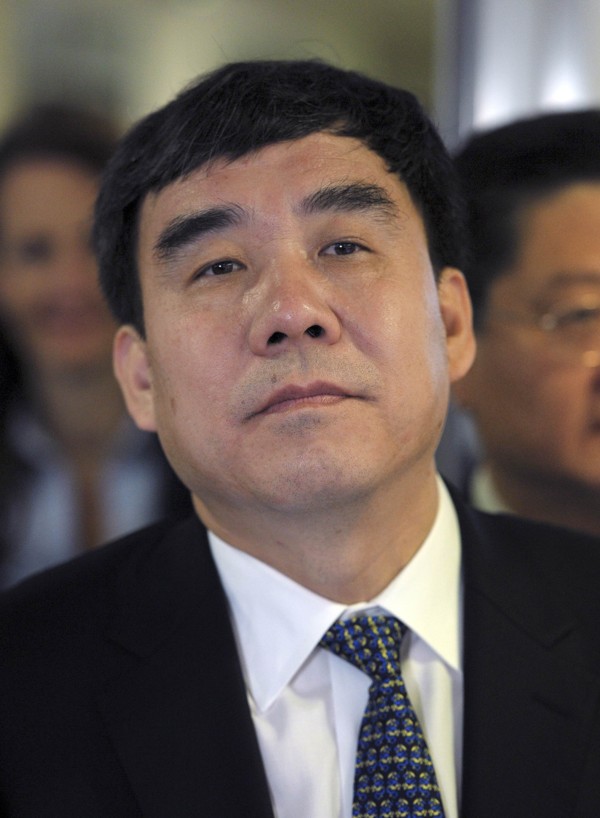
Trade war tightens credit for China’s small businesses, regulator warns
- Lenders still a ‘long way’ from solving the problem of bank credit access for small firms
The credit squeeze hitting Chinese small and medium-sized businesses is being exacerbated by the trade war with the United States, according to China’s insurance and banking regulator.
In recent weeks, Beijing has announced a series of measures to support the private sector as increasing numbers of smaller export firms both struggle to get access to credit and risk losing orders due to the trade war.
China’s economy is growing at its slowest pace in a decade and it is likely to slow further as the trade war with the US escalates. Corporate bond defaults are at a record high this year amid falling profits and rising financing costs.
The Financial Stability and Development Committee – the country’s highest decision-making body for economic and financial policies, headed by top presidential economic adviser Vice-Premier Liu He – has given specific orders on what Chinese banks, mostly owned by the central or local governments, should do to boost credit support to private businesses.
Dr William Overholt of Harvard predicts global recession within years
Private firms, which usually do not qualify for traditional bank loans, have struggled to get financing since the government’s campaign to eliminate shadow banking cut off the only source of credit for many firms.
At a media briefing organised on Tuesday by the State Council Information Office, Wang Zhaoxing, vice-chairman of the China Banking and Insurance Regulatory Commission (CBIRC) said China’s banks still had a long way to go to meet the borrowing needs of the private sector.
“To really solve the high cost and the difficulty [private firms have] in borrowing from banks ... we are still a long way away,” Wang said. “We need to work on it.”
Beijing has a funding relief plan for distressed private firms but will banks follow?
Commercial banks usually have a strong preference to lend to state-owned enterprises, which have implicit government backing, rather than private companies, which are viewed as being less creditworthy.
Yi Huiman, chairman of Industrial and Commercial Bank of China, the nation’s largest bank, told the gathering that his institution did not discriminate against private companies.

“We treat state-owned enterprises and private enterprises equally,” Yi said, adding that the bank assessed borrowers based on the quality of their business operations, not their ownership, size, or the industry in which they operated.
But Tian Guoli, chairman of China Construction Bank Corp (CCB), the country’s second biggest lender, said traditional banks were not designed to serve the private sector.
“If a large organisation does not change its mindset to serve small and micro enterprises, it is very difficult to be efficient,” Tian said. “In the past, non-performing [loans] were very high, so lending to small firms was discouraged.”
Yi and Tian also said they had not stopped lending to private firms. ICBC’s loans to private firms stood around 2 trillion yuan (US$287 billion) as of the end of September, up more than 100 billion yuan from the start of 2018, according to Yi.
CCB’s in-house “Yunshuidai” credit system, developed for lending to small firms, has extended more than 160 billion yuan of loans since it started in December and the total could rise to 200 billion yuan by the end of this year, with the non-performing loan rate at just 1 per cent, according to Tian.
Wang said the CBIRC had told banks to continue to lend to leading private firms facing temporary difficulties and stiff competition. Banks should continue to lend to small to medium-sized firms that are relatively competitive but may be affected by the trade war, according to the instructions.
Chinese shares fall as government lifeline to private sector fails to lift investors
But the regulator would not loosen credit risk controls and those private firm that now faced a cash crunch because of their previous “reckless expansion” should accept the responsibility for their lack of access to credit now, Wang said.
“Some private enterprises expanded aggressively at home and in international markets,” Wang said. “This [expansion] was all built on borrowing and leverage. [The expansion] was totally a diversion from their core business. As a result cash is [now] drying up… Now that the markets have turned, they are facing cash-flow problems and that’s why they have to default [on borrowings].”

